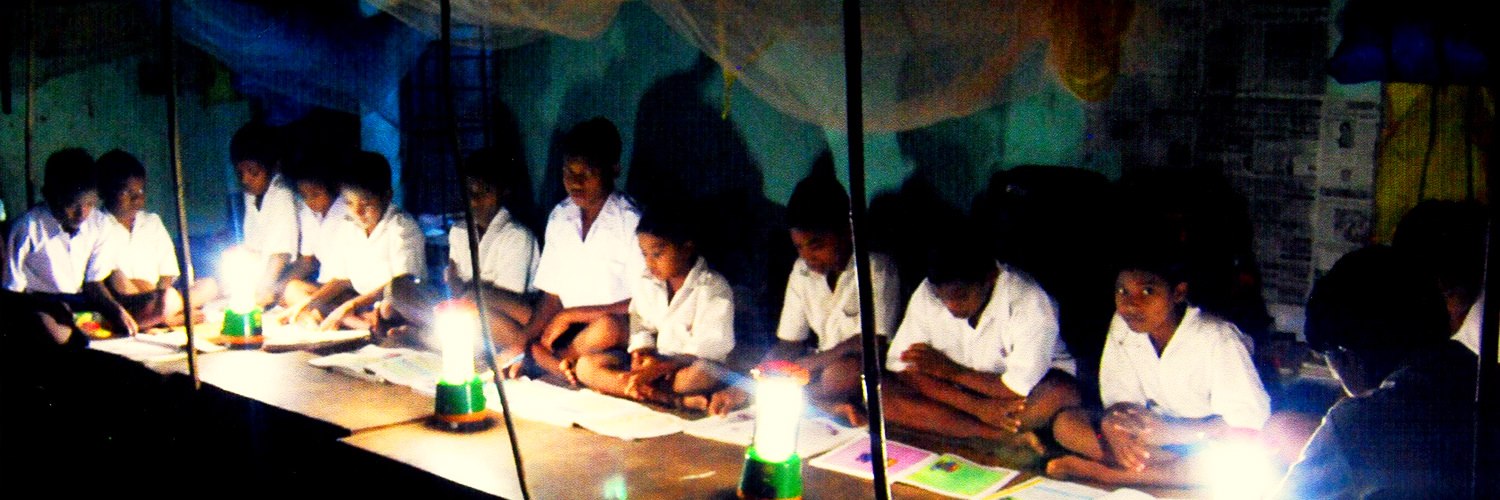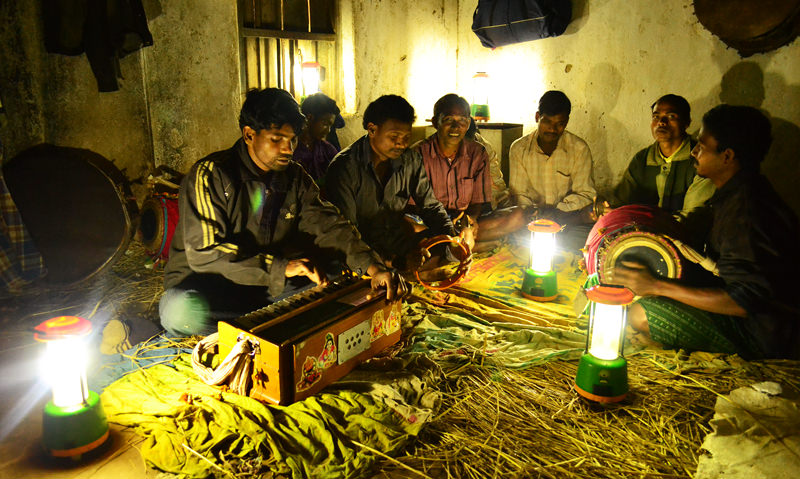The world has made unimaginable progress in many areas of technology. Yet, millions of people around the world lack access to electricity. Coming to India’s rural scene, statistics show there has been a lot of progress in electrification in the country. However, there has been far less progress when it comes to the actual usage of electricity, even in electrified areas. One of the parameters used to define a village as ‘electrified’ is access for just ten percent of the village to electricity. Also, when it comes to actual usage of power, there are many constraints, such as the cost and availability of power. Therefore, the need for a multifaceted approach to solutions for millions of people is critical, solar energy being one of them. Professor M V Rajeev Gowda, the newly elected Rajya Sabha MP, emphasises this need in his maiden speech in Parliament on August 5th 2014.
The ‘Lighting a Billion Lives’ (LaBL) programme is an initiative of The Energy and Resources Institute (TERI) led by Nobel laureate Dr. R K Pachauri. The LaBL campaign is about making solar powered lamps available in areas where there is limited or no access to electricity. The project connects with six of the eight United Nations Millennium Development Goals (MDGs): 1. The eradication of extreme poverty and hunger, 2. Promotion of gender equality and empowerment of women, 3. Achievement of universal primary education, 4. Ensuring of environmental sustainability, 5. Reduction of child mortality, and 6. Improvement of maternal health.

x
The LaBL implementation process starts with TERI teaming up with partner organisations, such as local NGOs and technology partners. Once this is done, LaBL undertakes a study in order to gauge the requirements of each village. After this, a village and an site for setting up the solar charging station in which the lamps are housed is selected, and a ‘user sensitisation workshop’ is carried out, in which the villagers are exposed to the solar lanterns and are made aware of its benefits. The next step in the process involves the selection of a village ‘entrepreneur’ - an individual who is trained by TERI, together with the partner organisation, to operate and manage the solar charging stations. The entrepreneur can then distributes these lanterns to the villagers on rent, and thus a sustainable market for the lanterns is created. After TERI processes orders of the approved solar lanterns from its technology partners, the material for the charging stations and the lanterns themselves are set up by TERI approved installers at the site. This is essentially the last step of the implementation process, ending with the entrepreneur then charging his/her lanterns and renting them to the villagers.

LaBL started its activities in February 2008 and until recently, has already impacted almost 25 lakh lives in nearly 5 lakh households from over 2500 villages in 11 countries in South Asia and Africa.
Image: LaBL ©x
Young people, mainly college students and young professionals, can get involved with LaBL through its International Torchbearers Programme (LaBL - ITB) and contribute to positive social change and promoting a greener world.

Jacob Kuruvilla
Editor Jacob Kuruvilla wears many hats including those of a book-a-holic, food connoisseur and movie buff thoroughly enjoys long cycle rides and quotes Tolkien and Christopher Paolini as a few of his favourite writers.


